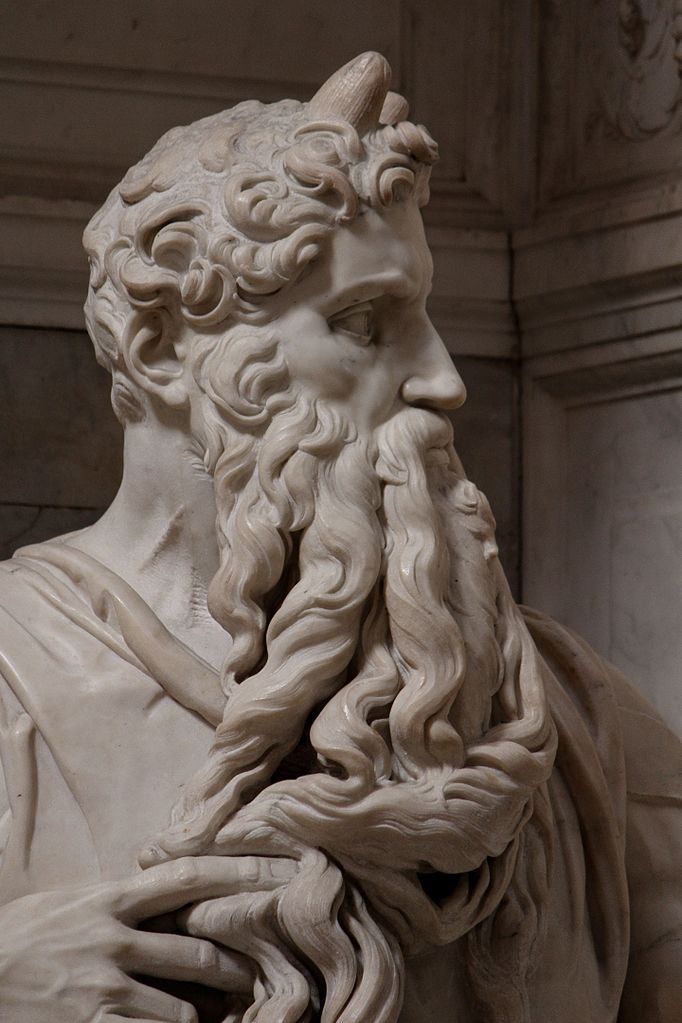Remember to Let God be God
What do Moses, Paul, and Bill Graham Have in Common?

Remember to let God be God.
That is the advice presented in the homily below, presented September 26, 2021, by Deacon James Sinacore at Mass in St. John Vianney Church, Northlake, Illinois.
You may be surprised to learn about the common threads between Moses, Paul, and Baptise evangelist Billy Graham.
***
Have you ever stopped to think about the challenges we confront in our life with God?
We all believe that God is the source of our being and that He wants what’s best for us. We believe that He loves us and even died for us so that we can be with Him in heaven for all eternity. And with this in mind, it just seems natural that our relationship with God should be “peaches and cream” — easy-going and predictable.
Yet, there are times when we struggle. We think events in our life should be going in one direction and we find ourselves going in another. At times, we find ourselves in a rub, a situation of God’s will versus our will or God’s plan vs. our wants and interests.
If there is ever a hard lesson to learn it is that we have to let God be God. If God is who He says He is — and if God is who we believe He is — then it only makes sense to realize that it is God who knows best. We have to let Him direct what happens in our lives.
Obviously, this can at times, be very difficult. In some instances, God’s will for us can feel strange. It can be perplexing. At times, we may find ourselves reaching out to Him in great confusion. For example, with an impassioned voice, we might ask God something such as: “Why is my uncle dying of cancer? He’s such a good man.”
“Why didn’t I get that job? Lord, you know how much we need the income!”
When we experience a conflict of our interests with God’s permissive will, when the events in our life challenge our understanding, it is God’s way that must prevail And it is up to us to pull back and let God be God.
This does not mean that we should set aside our will or that we should suspend our problem-solving skills.
When faced with life’s challenges, we should do what we can but we should do so with the realization that it is God who is in charge. This can be a very difficult lesson to learn.
In our readings for today, we have two examples of how people had to learn this lesson.
In our passage from the Book of Numbers, we are at a point in salvific history where Moses is ready to throw in the towel. He has led the Israelites through the desert and they unceasingly have been complaining about one thing after another. Moses needs help and God tells him to appoint 70 elders to share in the role of leadership.
They are all to go to the tent where God and Moses commune and then God promises to bestow a share of the Spirit upon the 70. As it turns out, 68 of the appointed elders go to the meeting tent. But for whatever reason, two of the appointed elders (Eldad and Medad) are not present with the others. Later, when the 68 elders begin prophesying as a sign of God’s Spirit being with them, Eldad and Medad begin to prophesy also.
This causes Joshua to freak out! He says: “Moses, My Lord … stop them.” You could almost hear him saying: “Moses, Eldad, and Medad didn’t follow the rules. They didn’t go to the meeting tent. So don’t let them do what the others are doing!”
But Moses, who has an intimate relationship with God, sees things more clearly. He says: “Are you jealous for my sake? Would that all the people of the Lord were prophets!” In other words, Moses tells Joshua: “Cool your jets. God knows what He’s doing. Let God be God.”

We see a parallel event in the Gospel where someone who is not among the recognized followers of Christ is driving out demons in His name. John tells Jesus that they tried to stop him but Jesus tells him not to get in the way.
Our Lord then says: “There is no one who performs a mighty deed in my name who can, at the same time, speak ill of me.” It’s as though Jesus were saying: “John, use your head. If someone is doing something holy in my name it means that God is with him. He doesn’t have to be a card-carrying member of our group. Let God be God.”
It’s at that point where Jesus goes into all that hyperbolic language.
“If your hand causes you to sin … cut it off.”
“If your foot causes you to sin … cut it off.”
“And if your eye causes you to sin … pluck it out. Better for you to enter the Kingdom of God with one eye … than with two eyes to be thrown into Gehenna.”
Obviously, our Lord is not instructing his followers to maim themselves. What He is doing is using exaggerated language to teach how important is for us to be open to God’s action and to not stand in opposition to it — a message that is shared in our reading from St. James, who makes it clear that those who defy the ways of God will ultimately be in misery.
Let me share with you an experience from my own life that highlights what I’m saying.
Those of you who spend any time with me will come to know that I don’t have a great love for non-Catholic evangelists. Granted, some are better than others. But there are many who act more like entertainers than those who are calling people to Christ. This is true especially for televangelists, those who do their work on television.
However, there has been one non-Catholic evangelist for whom I have always had great respect. And that’s Billy Graham.

If you ever heard him, you know that he spoke with great passion. He had fire in his belly for Christ. He wasn’t selling any products. He didn’t try to attract anyone to come to a Christian-based amusement park or anything like that. He didn’t utilize any theatrics. And he didn’t promote any gimmicks, such as prayer cloths or similar kinds of things. He spoke all over the world. And when he preached, he did so in large venues such as baseball fields and huge auditoria because people came to hear him by the thousands.
I never met the man but I honestly believed he was sincere. He only preached Christ crucified, just like St. Paul but he did so as a Baptist. I didn’t understand why this was.
Over the years, I remember saying to God in prayer: “Look at this man Lord. He speaks so well of you. Outside of Bishop Fulton Sheen, I haven’t seen Catholics with this kind of passion. Why don’t you bring him into the Church? We could use someone just like this.” And as time went on I remember thinking that perhaps God was using Billy Graham to attract people who were wandering in the world with little or no faith life.
Perhaps God was using him to attract people to Christ who had a hatred for the Catholic Church because of their distorted understanding of it. If not for Billy Graham, some of these people may have had no connection to Christ at all.
Over the years I was waiting for the thunderous announcement that Billy Graham was coming into the Catholic Church but it never happened. Time passed and on February 21, 2018, at the age of 99, Billy Graham died.
As I would reflect on his life, I would think about his personal judgment. And I wondered what happened to the state of his soul. And then it hit me. If Billy Graham did not condemn his soul to hell because of a sinful life, then by the grace of God he’s either in purgatory or in heaven. And if that’s the case, Billy Graham would be in the Catholic Church.
Perhaps God did bring this powerful evangelist to the Catholic Church, not in the way I was thinking but in the way God was thinking.
My dear friends, as we go through life, we will at times find that God brings us great joys and at other times He lets us experience difficult moments.
Let’s always engage our intellect and will in whatever comes our way. Always desire to act prudently. But never ever forget that God is in charge. Nothing gets past Him. And nothing slips His view.
When difficult events occur, work to get beyond them but trust in God. When hardships come your way, work to resolve them but trust in God. When something occurs that does not make sense, ask God for wisdom and then vow to trust Him. The more that we give God our trust, the more He will hear us as we call upon him. The more that we trustingly accept what happens in our lives, the more we will declare to the world that we are willing to receive what makes us happy or what makes us sad, what confirms our beliefs or what challenges us, what makes sense to us or what confounds us.
Our acceptance, patience, and peace will be a perpetual witness that shows others how much we desire to let God be God.
Related

Divine Mercy, the Small and the Great
José María Montiu de Nuix
27 April, 2025
5 min

Reversing Social Deterioration: A Task That Begins in Business Management
Alejandro Fontana
25 April, 2025
4 min

The Revolution of Tenderness
María Elizabeth de los Ríos
25 April, 2025
3 min

His Hope Does Not Die!
Mario J. Paredes
24 April, 2025
6 min
 (EN)
(EN)
 (ES)
(ES)
 (IT)
(IT)

